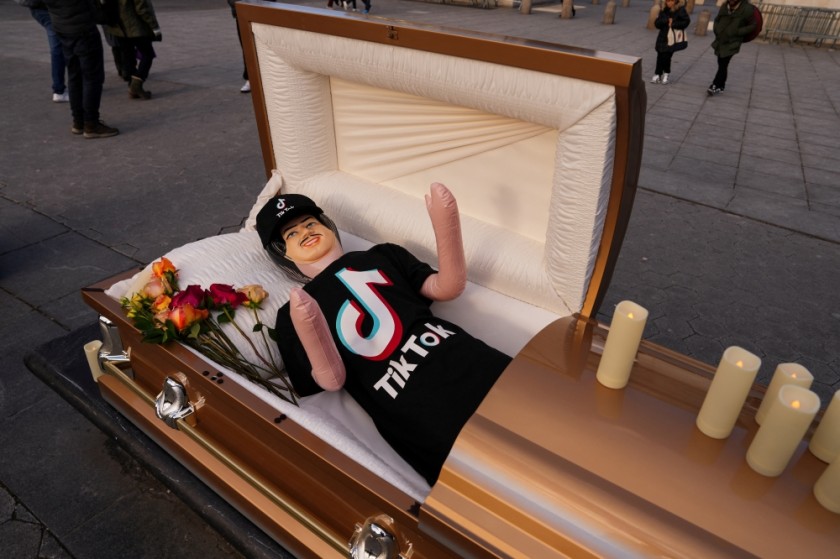TikTok announced late Friday that its 170 million American users would “go dark” on Sunday due to a U.S. ban over concerns that its Chinese ownership could jeopardise national security.
TikTok stated, “Unfortunately, TikTok will be forced to go dark on January 19” unless the Biden administration ensures Apple, Google, and other companies won’t be fined for providing its United States services.
Read also: U.S. Supreme Court upholds TikTok ban ahead of Trump’s inauguration
Supreme court ruling seals TikTok ban
TikTok released the statement on Friday in an attempt to convince the administration to reconsider the ban affirmed by the Supreme Court on Friday that would ban its service starting Sunday.
This law prohibits app shops and major cloud computing providers from selling TikTok to U.S. consumers unless ByteDance sells the company to a non-Chinese owner.
TikTok did not say what would happen on Sunday, including if it would shut down voluntarily or wait till app shops disconnect it from the devices of American users.
Biden has previously indicated that Apple, Google, and other businesses would not be instantly prosecuted under the law.
After bipartisan congressional approval, President Biden signed the TikTok prohibition measure in April. Lawmakers warned Beijing could force ByteDance to collect sensitive American user data or influence TikTok content for its benefit.
TikTok claims the Chinese government has no participation in the company and that the video app has spent billions of dollars to guarantee security for its over 100 million U.S. users, majority of whom were young people.
But prosecutors argued that the Chinese laws allowed the government to summon companies for information regardinf its operations and users, a risk that the U.S. could not take.
On Friday, the Supreme Court justified the government’s ban based on national security concerns. The majority opinion highlighted “TikTok’s extensive reach and vulnerability to foreign adversarial influence, in conjunction with the substantial amounts of sensitive data that the platform gathers.”
After the Supreme Court’s ruling, Deputy Attorney General Lisa Monaco said the procedure would take “over time.” According to White House press secretary Karine Jean-Pierre, the incoming Trump administration, which takes office on Monday, will enforce the law.
Read also: TikTok denies sale to Elon Musk amid looming U.S. ban deadline
TikTok’s fight for clarity on legal distribution
TikTok argued those comments were insufficient to reassure other companies that they could legally distribute and operate the app. After the ban, erring corporations can get fined as high as $5,000 per any U.S. who accesses the video app.
“The statements issued today by both the Biden White House and the Department of Justice have failed to provide the necessary clarity and assurance to the service providers that are integral to maintaining TikTok’s availability to over 170 million Americans,” the company said.
Influencers shift to new platforms amid uncertainty
TikTok’s loss of that user base would be considerable but not the worst. In 2020, it was outlawed in 200-million-user India. Like the U.S., India banned TikTok for national security reasons.
President-elect Donald J. Trump supports TikTok, but his administration’s approach is unknown. He said on social media that he respected the Supreme Court verdict.
“My decision on TikTok will be made in the not-too-distant future,” Mr Trump said, “but I must have time to review the situation.”
Meanwhile, some creators are already starting to share their content on other platforms like Instagram Reels and YouTube Shorts. One influencer explained, “I want my audience to find me if TikTok goes away.”
In anticipation of Sunday, millions of Americans are thinking about TikTok—a place for creativity, connection, and enjoyment. For many, losing TikTok is like losing part of their lives.
















